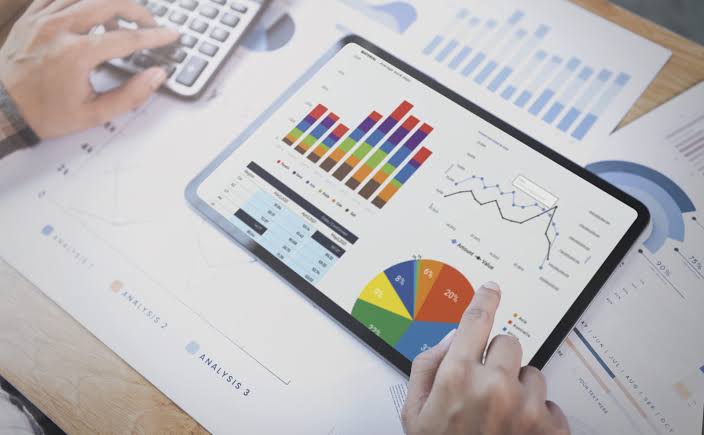Managing your personal finances might sound straightforward, but it can quickly become overwhelming if you’re not careful. Personal finance encompasses everything from budgeting and saving to investments and retirement planning. Like credit card consolidation loans, understanding where you stand financially is crucial for making informed decisions and achieving your financial goals. One way to gain clarity is by conducting a personal finance assessment. This process can help you identify areas for improvement and create a solid plan for your financial future.
What Is a Personal Finance Assessment?
A personal finance assessment is a comprehensive review of your financial situation. It includes evaluating your income, expenses, debts, and savings to understand your overall financial health.
Why Assess Your Finances?
Regularly assessing your finances allows you to:
- Identify Strengths and Weaknesses: Knowing where you excel and where you might need improvement can help you make better financial decisions.
- Set Clear Goals: By understanding your current financial state, you can set realistic short-term and long-term goals. This may include saving for a vacation, buying a home, or preparing for retirement.
- Make Informed Decisions: Whether you’re considering credit card consolidation loans to manage debt or looking into investment opportunities, a clear financial picture allows you to make educated choices.
Key Components of a Personal Finance Assessment
When conducting a personal finance assessment, consider these key components:
1. Review Your Income
Start by listing all your sources of income. This can include:
- Salary or Wages: Your regular paycheck is usually your primary source of income.
- Side Income: This includes any money earned from side hustles, freelance work, or part-time jobs.
- Passive Income: Income from investments, rental properties, or dividends also counts.
Knowing your total income is crucial for creating a budget and understanding how much you have available to spend, save, and invest.
2. Analyze Your Expenses
Next, take a close look at your expenses. Categorize them into fixed and variable costs:
- Fixed Expenses: These are costs that remain the same each month, such as rent or mortgage payments, insurance, and loan payments.
- Variable Expenses: These can fluctuate, including groceries, entertainment, and discretionary spending.
By analyzing your spending habits, you can identify areas where you may be overspending and find opportunities to cut back.
3. Evaluate Your Debt
Understanding your debt situation is critical for a personal finance assessment.
Types of Debt to Consider
Take stock of all your debts, including:
- Credit Card Debt: List out each credit card, its balance, and the interest rate. If you have high-interest credit card debt, you may want to explore options like credit card consolidation loans.
- Student Loans: Know the total amount owed and the repayment terms.
- Mortgages and Car Loans: Include any other loans you may have.
By evaluating your debt, you can create a plan to pay it down effectively, minimizing interest payments along the way.
4. Assess Your Savings and Investments
Another essential aspect of your financial assessment is reviewing your savings and investments.
Savings Goals
Consider your savings accounts, emergency funds, and any specific savings goals you have:
- Emergency Fund: Ideally, you should aim to save at least three to six months’ worth of living expenses for unexpected situations.
- Short-Term and Long-Term Savings: Identify your goals, whether it’s saving for a vacation, a new car, or retirement.
Investment Portfolio
Evaluate your current investments:
- Retirement Accounts: Review your 401(k), IRA, or other retirement savings.
- Other Investments: Consider stocks, bonds, or real estate. Ensure that your investment strategy aligns with your financial goals and risk tolerance.
5. Review Insurance Coverage
Insurance is often an overlooked aspect of personal finance, but it’s crucial for financial security.
Types of Insurance to Consider
- Health Insurance: Ensure you have adequate coverage to avoid high medical costs.
- Home and Auto Insurance: Review your policies to confirm that you have the right coverage for your needs.
- Life Insurance: If you have dependents, consider whether you have sufficient life insurance to protect them financially.
Assessing your insurance coverage helps safeguard your financial future and can prevent setbacks in case of unforeseen events.
Setting Financial Goals
After completing your assessment, it’s time to set actionable financial goals.
Short-Term Goals
These are goals you want to achieve within the next year or so:
- Paying Off High-Interest Debt: Focus on paying down any high-interest credit card debt as soon as possible.
- Saving for a Vacation: Set aside a specific amount each month to reach your travel goals.
Long-Term Goals
Think about what you want to achieve in the next five years or beyond:
- Buying a Home: Start saving for a down payment and research mortgage options.
- Retirement Planning: Determine how much you need to save for retirement to maintain your desired lifestyle.
Conclusion: Take Charge of Your Financial Future
Conducting a personal finance assessment is a powerful step toward achieving financial security. By understanding your income, expenses, debts, and savings, you can create a roadmap that leads to your financial goals.
Remember, financial planning is not a one-time event. Regularly revisiting your financial situation allows you to adapt to changes and stay on track. So take the time to assess your finances, set clear goals, and enjoy the peace of mind that comes with being financially informed. Your financial future is in your hands—make it a bright one!

